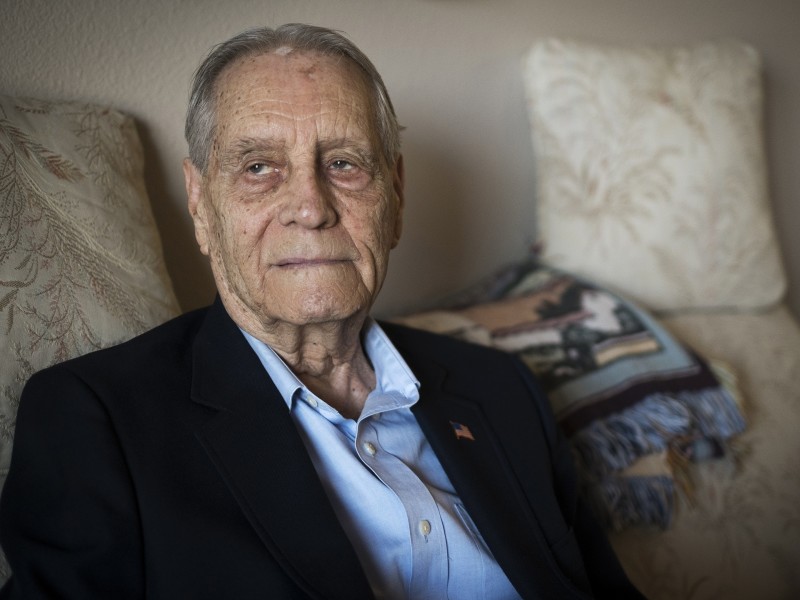"Hopefully," he said, "the acceptance of this sincere apology will bring some closure and relief to the age-old problems confronting the surviving former prisoners of war and to their family members."
NPR's Sam Sanders said Murphy was the only former prisoner of war made to work for the Japanese conglomerate who was able to make the trip.
Although the Japanese government has already apologized to prisoners of war for their brutal treatment during the war, this is the first time that a Japanese company has done so.
"As far as I know, this is a piece of history," Rabbi Abraham Cooper, an associate dean at the center, was quoted by the AP as saying. "It's the first time a major Japanese company has ever made such a gesture. We hope this will spur other companies to join in and do the same."
According to the AP: "Some 12,000 American prisoners were shipped to Japan and forced to work at more than 50 sites to support imperial Japan's war effort, and about 10 percent died, according to Kinue Tokudome, director of the US-Japan Dialogue on POWs, who has spearheaded the lobbying effort for companies to apologize."
The move comes at a time when the Japanese government appears to be trying to put the country's wartime atrocities behind it as part of a larger push to restore its ability to project military power abroad -- something that had been prohibited by its postwar constitution.
Earlier this week, Prime Minister Shinzo Abe won a crucial vote in Parliament on legislation to give the army and navy limited powers to fight in foreign conflicts for the first time since World War II.
The New York Times writes: "The vote was the culmination of months of contentious debate in a society that has long embraced pacifism to atone for wartime aggression. It was a significant victory for Mr. Abe, a conservative politician who has devoted his career to moving Japan beyond guilt over its militarist past and toward his vision of a 'normal country' with a larger role in global affairs."
Abe has made multiple visits to Tokyo's Yasukuni shrine, which honors Japan's dead from World War II, including war criminals. His government has also sought to downplay or deny the wartime use of so-called comfort women in military brothels that pressed mainly Asian girls and women into prostitution.
In a Times opinion piece written last year, Mindy Kotler, the director of Asia Policy Point, a nonprofit research center, wrote: "Mr. Abe's administration denies that imperial Japan ran a system of human trafficking and coerced prostitution, implying that comfort women were simply camp-following prostitutes."
Copyright 2015 NPR. To see more, visit http://www.npr.org/.
9(MDAxOTAwOTE4MDEyMTkxMDAzNjczZDljZA004))

9(MDAxOTAwOTE4MDEyMTkxMDAzNjczZDljZA004))